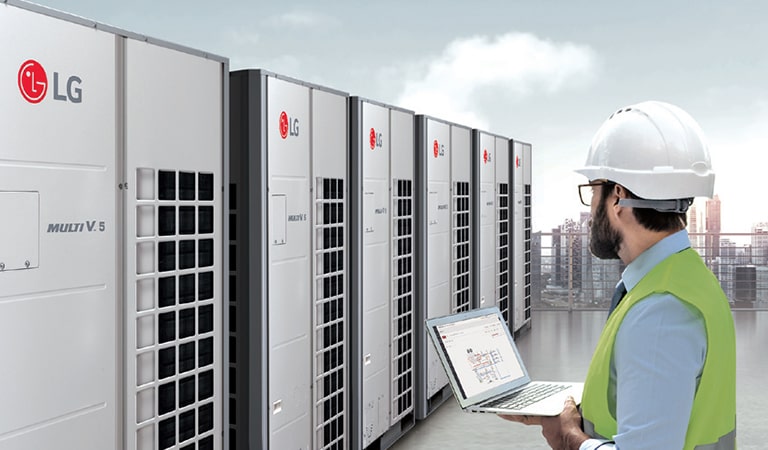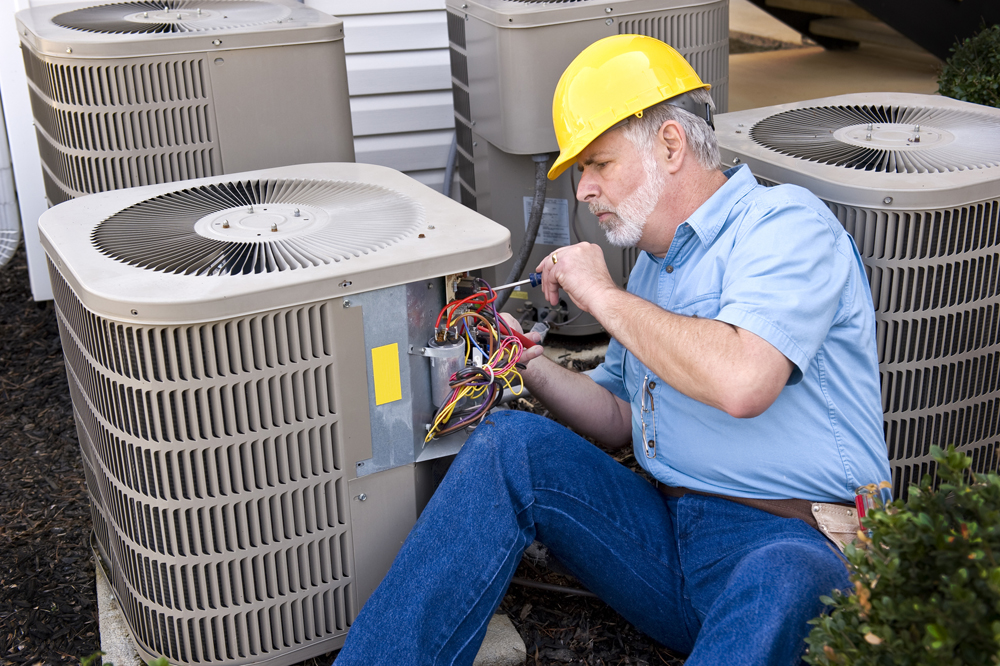Upgrade Tips to Make the Most of Your New furnace replacement
Upgrade Tips to Make the Most of Your New furnace replacement
Blog Article
Picking Between a Heat Pump and Heating System: Key Factors To Consider for Your HVAC Demands
When reviewing home heating alternatives for cooling and heating needs, the choice in between a heat pump and a furnace can be intricate. Each system offers distinctive benefits customized to particular climates and power performance goals. Recognizing these differences is crucial for making an enlightened option. Secret factors such as installment expenses and environmental effect additionally make complex the option procedure. Which option truly aligns with one's comfort and sustainability choices? The following areas will check out these factors to consider carefully.
Understanding Heat Pumps: Exactly How They Function and Their Advantages
While lots of home owners consider various heating alternatives, comprehending how heat pumps function and their benefits can considerably affect their decision. Heatpump operate by moving heat instead of creating it. In the winter season, they draw out warmth from the outdoors air or ground and move it inside your home, while in the summertime, they reverse this process, cooling down the home by expelling warmth outside. This double performance makes them functional for year-round climate control.One of the primary benefits of warmth pumps is their energy efficiency. They utilize considerably much less electrical energy compared to traditional heating systems, potentially resulting in lower energy expenses (ductless mini splits). Additionally, heatpump have a smaller sized carbon footprint, making them an eco-friendly choice. They additionally need much less upkeep than traditional systems, adding to lasting expense financial savings. Generally, comprehending the technicians and advantages of heatpump can assist home owners make notified choices regarding their heating and cooling down needs
Checking Out Furnaces: Kinds, Operation, and Advantages
Heating systems come in different kinds, consisting of gas, electrical, and oil versions, each with distinctive functional systems. Comprehending these differences is vital, as they influence efficiency and home heating efficiency. In addition, furnaces offer many benefits, such as constant heat result and dependability in cooler environments.
Kinds of Heaters
Furnace can vary considerably in layout and operation, with heaters being a preferred option among property owners. There are several sorts of heating systems, each making use of different gas resources and innovations. Gas heating systems prevail, leveraging all-natural gas to produce heat efficiently. Electric heating systems, on the various other hand, use electric resistance to produce heat, frequently preferred for their uncomplicated installation. Oil furnaces, while less usual, are effective in locations with limited gas gain access to (heat pump service). Additionally, condensing heaters maximize power efficiency by recycling and recording exhaust gases. Each kind operates with a system of warm exchangers and ductwork to disperse warm air throughout a home. Comprehending the differences in between these heater types is essential for informed cooling and heating choices
Advantages of Furnaces
For homeowners seeking dependable heat throughout cold months, the benefits of furnaces are considerable. Heaters provide consistent home heating, guaranteeing even temperature levels throughout the home. They are specifically reliable in extreme cold, typically outperforming heat pumps in freezing problems. Various types, including gas, electrical, and oil heating systems, supply versatility to fulfill diverse demands and preferences.Furnaces likewise often tend to have lower initial installation prices compared to heat pumps, making them an extra available alternative for several. Their robust style adds to a much longer life expectancy, with many systems lasting over 15 years with proper upkeep. In addition, contemporary furnaces are usually geared up with advanced innovation for improved efficiency, which can bring about minimized energy costs. In general, heating systems continue to be a trustworthy choice for effective home heating.

Energy Efficiency: Contrasting Warmth Pumps and Furnaces
When comparing power efficiency in between warmth pumps and heaters, the Seasonal Energy Performance Ratio (SEER) plays an essential role in identifying performance. Additionally, a functional price analysis exposes the long-lasting financial implications of each system. Recognizing these variables can guide homeowners in making educated decisions regarding their home heating services.
Seasonal Energy Performance Proportion
Power effectiveness plays an essential duty in the decision-making process between heatpump and heating systems, especially when considering the Seasonal Power Performance Ratio (SEER) This statistics procedures the cooling efficiency of warmth pumps over an entire cooling period, giving a standardized way to evaluate efficiency. Greater SEER scores show higher energy efficiency, converting to lower power consumption and minimized energy costs. In contrast, heaters are normally examined utilizing the Yearly Fuel Application Performance (AFUE) rating, which mirrors heating effectiveness. When contrasting these 2 systems, house owners must prioritize SEER rankings for heatpump, as they straight influence total power savings and ecological sustainability. An extensive understanding of SEER can notably influence the lasting fulfillment and cost-effectiveness of the picked cooling and heating option.
Operational Price Evaluation
Recognizing the functional expenses connected with warmth pumps and heating systems is essential for home owners examining their options. Warm pumps typically provide higher power effectiveness, converting electrical power right into warm with very little waste. This results in lower monthly energy costs, specifically in moderate environments. Conversely, standard furnaces, particularly gas versions, may have lower ahead of time costs but can sustain greater operational costs in time because of sustain costs and effectiveness ratings.Moreover, warmth pumps can work as both heating and cooling systems, possibly minimizing the demand for separate HVAC units. While initial investments for warm pumps might be greater, their lasting savings in power efficiency can make them a more affordable choice for many families. Cautious evaluation of regional energy prices is important to establish the most effective choice.
Setup Prices: What to Expect for each and every Heater
Installation prices for heating unit can vary considerably in between warmth pumps and furnaces, influencing property owners' decisions. Warmth pumps normally have greater ahead of time installment costs, commonly ranging from $3,500 to $8,000, depending upon the device dimension and complexity of installation. This includes the exterior device, indoor handling system, and needed ductwork adjustments. On the other hand, heating systems have a tendency to have reduced first prices, averaging between $2,500 and $6,000, which can be appealing for budget-conscious home owners. Nevertheless, installment expenditures can boost if comprehensive ductwork is required.Moreover, the option of gas type for furnaces-- gas, gas, or electric-- can likewise impact installment prices. While warmth pumps offer power effectiveness, their initial financial investment may deter some customers. Inevitably, evaluating installation prices alongside lasting savings and effectiveness will assist property owners in making educated choices regarding their heating unit.
Climate Considerations: Which System Does Much Better in Your Location
Just how do environment conditions affect the efficiency of heater? The performance of heatpump and heaters can vary greatly my review here depending on the neighborhood climate. In moderate environments, warmth pumps succeed by effectively transferring heat from the outside air, making them an energy-saving alternative. look at more info Nonetheless, their efficiency lessens in extremely chilly temperatures, where they may battle to extract enough warmth. On the other hand, heating systems, especially gas models, offer consistent and dependable warm despite outdoor conditions, making them preferable in colder regions.In areas that experience milder wintertimes, heat pumps can operate successfully year-round, offering both heating & cooling. On the other hand, regions with extreme winter seasons typically gain from the robustness of heaters. Eventually, comprehending the neighborhood environment is essential when making a decision between a warmth pump and a heater, as it directly impacts their operational performance and general performance.
Upkeep Demands: Long-Term Look After Warmth Pumps vs. Furnaces
While both warm pumps and furnaces require routine maintenance to assure peak performance, their particular requirements and treatment routines differ significantly. Furnaces commonly require much less regular interest, with annual inspections sufficing to examine for gas leaks, clean filters, and analyze total performance. Their less complex style typically permits straightforward repairs.In contrast, warmth pumps demand semiannual maintenance because of their twin role in cooling and heating. This consists of cleansing coils, inspecting cooling agent levels, and ensuring that both the interior and exterior devices function at their best. Furthermore, heatpump maintenance frequently involves more elaborate parts, making expert servicing essential.Neglecting maintenance can lead to lessened effectiveness and enhanced power costs for both systems. Eventually, home owners ought to think about these lasting treatment needs when choosing in between a warmth pump and a heater, as proactive upkeep can prolong the lifespan and performance of either system substantially.
Ecological Effect: Selecting a Lasting Home Heating Option
The ecological influence of heating systems is a vital assessment for property owners looking for lasting options. Heatpump are typically extra energy-efficient than typical furnaces, as they transfer heat as opposed to create it, greatly minimizing carbon emissions. By making use of renewable energy sources, such as geothermal or air-source heatpump, home owners can further reduce their eco-friendly footprint.On the other hand, gas heating systems give off greenhouse gases and add to air contamination, though they often give higher heat result. Nonetheless, innovations in technology have led to the advancement of high-efficiency furnaces that reduce emissions.Ultimately, selecting a heater involves considering effectiveness against environmental effect. Property owners are motivated to show on neighborhood energy resources and rewards for renewable systems, ensuring a selection that aligns with both individual convenience and environmental obligation. The decision influences not only instant comfort yet also long-term sustainability and environmental health and wellness.
Regularly Asked Concerns
How Much Time Do Warmth Pumps and Furnaces Normally Last?
The lifespan of heat pumps usually ranges from 15 to twenty years, while heaters can last between 15 to thirty years. Routine maintenance significantly affects their durability and performance in offering home heating options.
Can I Make Use Of a Warm Pump in Incredibly Cold Climates?
Warm pumps can run in incredibly chilly environments, but their efficiency lessens as temperature levels drop. In such problems, supplementary heating resources might be needed to maintain comfy indoor temperature levels and assure peak performance.

What Is the Sound Level of Warmth Pumps Versus Furnaces?
The noise levels of heatpump and heaters differ substantially. Usually, heatpump operate even more silently than conventional heaters, making them preferable for those conscious sound, while furnaces may generate louder functional noises throughout home heating cycles.
Are Heat Pumps Suitable for Both Cooling And Heating?
Heat pumps are without a doubt suitable for both cooling and heating (ductless mini splits). They operate by moving heat, offering reliable temperature level control year-round, making them a functional option for house owners seeking an image source all-in-one HVAC option
What Size Home Heating System Do I Required for My Home?
Figuring out the appropriate dimension furnace for a home requires reviewing factors such as square footage, insulation high quality, neighborhood environment, and the home's layout. Consulting a specialist can guarantee an accurate assessment and perfect comfort. Warm pumps normally provide higher energy effectiveness, transforming electric power right into heat with very little waste. In modest environments, warm pumps stand out by effectively moving warm from the outside air, making them an energy-saving choice. On the other hand, heaters, particularly gas designs, offer constant and reputable heat regardless of outside problems, making them preferable in chillier regions.In locations that experience milder wintertimes, warmth pumps can run effectively year-round, giving both home heating and cooling. Warm pumps are usually much more energy-efficient than typical heaters, as they move heat rather than create it, considerably minimizing carbon exhausts. By making use of renewable power sources, such as geothermal or air-source warm pumps, home owners can even more lessen their eco-friendly footprint.On the various other hand, natural gas heaters release greenhouse gases and add to air pollution, though they often provide higher warm outcome.
Report this page